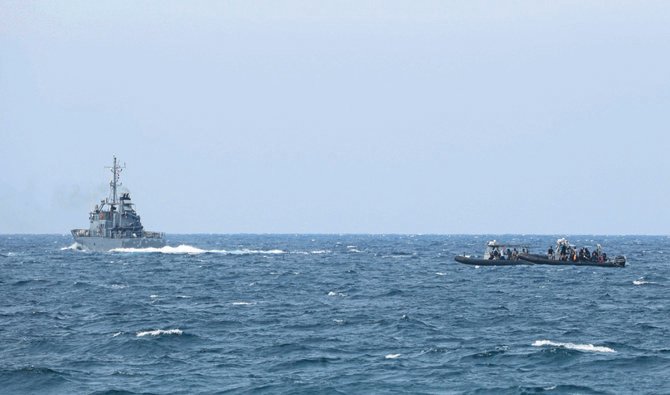A civilian training plane that belonged to the Lebanese Aviation Club crashed into the Mediterranean Sea on Wednesday morning and the two people on board are missing, the Lebanese Army announced.
The crash site is off the coast of Halat near Byblos where search operations continue for the pilot, Ali Hajj Ahmed, and a student pilot, Pascale Abdel Ahad.
The Cessna 172 plane took off from Beirut-Rafic Hariri International Airport at 10:06 a.m. local time on Wednesday, according to the Directorate General of Civil Aviation in Lebanon. Less than 20 minutes later, the plane disappeared from air navigation radars over the sea in the Halat area.
“The captain of the plane did not contact the control tower and did not give a distress signal, which is strange,” Kris Kashouh, of the Lebanese Plane Spotters, told Arab News.
The Lebanese Navy, Air Force, and Civil Defense have joined the search operations.
“The search concentrated on a wide area at a distance of one kilometer away from Halat beach and at depths ranging between 30 and 35 meters,” a Lebanese Civil Defense source said. “Divers from the civil defense took turns in the search operations in very delicate conditions, due to the tides and winds in the area.”
Unconfirmed reports indicated that Abdel Ahad had contacted the control tower because the pilot of the plane suffered a health condition.
But Lebanese Aviation Club board member Michel Abboud dismissed that claim.
“The planes are usually in continuous contact with the control tower and there were no defects reported by those who were on board the plane,” he said.
The Lebanese Aviation Club, which was created in 1923, is one of three aviation learning centers in Lebanon that train private pilots and provide licenses. The Cessna 172 plane that crashed is what is typically used for training flights and cannot hold more than three people, including the pilot.
A similar accident occurred on July 8, when a Cessna 172 with three people on board crashed in the Ghosta region, 36 kilometers north of Beirut, after having deviated from the approved flight plan. That plane was owned by Open Sky and the flight was for tourism. The pilot and two passengers on board were killed.
“In the Ghosta accident, the captain also did not contact the control tower which adds to the peculiarity of the situation,” Kashouh said. “The results of that investigation have not been released.”
Lebanese Interior Minister Bassam Mawlawi traveled by boat to the crash site where he was briefed on the rescue operations of the Lebanese Army and Civil Defense teams.
“Rescue boats split the crash area into squares so that the divers could scan the whole area,” Mawlawi said. “There is a large number of volunteers with their equipment who are helping in the rescue mission.”
Mawlawi also urged the Lebanese Ministry of Public Works to take additional measures in inspecting all aviation training planes.
“As part of ensuring public safety, so that these accidents do not get repeated,” he said.

